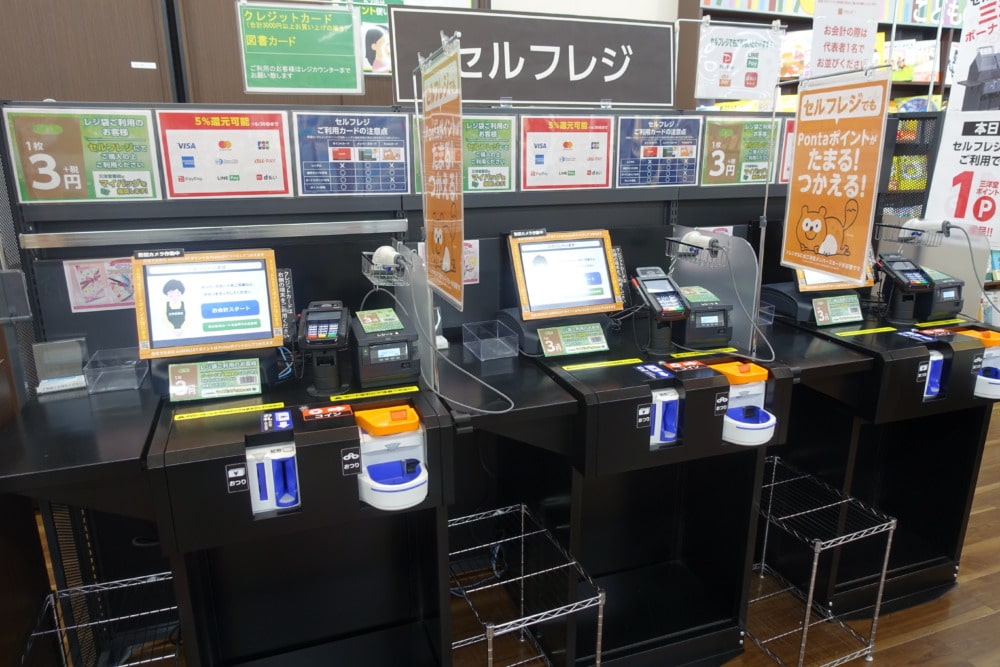
The yen is depreciating at unprecedented levels
Not only has the value of the Japanese yen weakened against the dollar, but the value of the yen has also weakened against the euro, Australian dollar, pound dollar, etc.
Why is the yen depreciating so much this time? What will happen to our lives if the yen continues to depreciate? I will explain
Please use this as an answer when your child asks, “What will happen if the yen is weak?” or use it in your school lessons.
目次
- 1 Why is the yen depreciating so much?
- 2 What will happen to our lives if the yen continues to depreciate?
- 3 Is there a way to stop the yen’s depreciation?
- 4 Common misconception: Does the weakening yen mean that Japan is losing its national power?
- 5 Companies and organizations rejoicing as the yen continues to weaken
- 6 summary
Why is the yen depreciating so much?
There are multiple reasons for the yen’s depreciation, which are intricately intertwined with domestic and international economic conditions, policies, and market psychology. The main factors are listed below:
1. Interest rate difference
Interest rates in Japan have remained low for a long time compared to interest rates in other countries, especially the United States.
When interest rates rise in the United States, investors seeking returns invest in dollar assets with high interest rates, which causes the dollar to be bought and the yen to be sold, leading to a depreciation of the yen.
2. Economic policy
The Bank of Japan, Japan’s central bank, has long adopted an accommodative monetary policy with the aim of overcoming deflation and promoting economic growth.
As a result, the amount of yen circulating in the market increases, and the value of the yen decreases relatively, which is also one of the reasons for the depreciation of the yen.
3. Economic performance
Investors’ confidence in a country’s currency increases when other countries perform relatively well while domestic economic growth stagnates.
As Japan’s economic growth slows, the dollar looks more attractive than the yen, especially if the US economy is showing strong growth, leading to a weaker yen.
4. Geopolitical risks and market psychology
International tensions or unforeseen political events can increase risk aversion.
Although the yen is traditionally considered a “safe haven” asset, in some cases other currencies (particularly the dollar) are considered safer, and the yen may be sold under such circumstances.
5. Balance between exports and imports
Japan is a country that is highly dependent on exports, but when the price of imported resources such as crude oil rises, import costs increase and the trade balance may deteriorate.
This may cause the yen’s supply and demand balance to fluctuate, leading to a depreciation of the yen.
The combination of these factors has caused the value of the yen to fall and the yen to continue depreciating.

Next, what will happen if the yen continues to depreciate? I will tell you.
What will happen to our lives if the yen continues to depreciate?
If the yen continues to weaken, it will have several effects on Japanese life. In particular, the following changes are possible:
1. Increase in the price of imported goods
As the yen depreciates, the prices of imported goods rise. Products that rely on imports from overseas, such as fuel, food, and home appliances, are particularly susceptible.
This could increase the cost of living for consumers and put a greater strain on household budgets.
2. Rising energy prices
Japan relies on imports for most of its energy resources.
If the yen’s depreciation causes the cost of importing oil and natural gas to rise, electricity and gas rates may rise.
This will put further pressure on household budgets.
3. Improving profits for exporting companies
On the other hand, a weaker yen is advantageous for exporting companies.
Selling products and services in foreign currencies increases your revenue when converted.
This can also have a positive impact on the employment situation and wages of people working in export industries.
4. Increased costs of traveling and studying abroad
A weaker yen reduces the value of the Japanese yen overseas, increasing the cost of traveling and studying abroad.
This means more costs for families planning education or travel abroad.
5. Inflation pressure
Increases in the cost of imported goods could lead to widespread price increases and may cause an increase in inflation.
Central banks may consider raising interest rates to stem rising inflation, but this could also increase borrowing costs such as mortgage interest.
As the yen depreciates, its effects appear in a variety of ways, and the impact on individual lives varies depending on the person’s lifestyle, occupation, and consumption pattern.
Therefore, proper household budget management and future planning are important in order to respond to these changes.


Common misconception: Does the weakening yen mean that Japan is losing its national power?
The further depreciation of the yen does not directly mean a decline in Japan’s national power.
The value of a currency is influenced by many factors, but it often does not directly reflect a country’s economic strength or political stability.
The weaker yen has the following backgrounds and effects:
1. Differences in monetary policy
A weak yen is likely to occur when there are large differences in monetary policy between Japan and other countries (especially the United States).
If the United States raises interest rates while Japan continues its low or negative interest rate policy, the value of the yen may fall as investors sell yen and buy other currencies in search of higher profits.
*Note: Currently, Japan has ended its negative interest rate policy, but the yen was sold even after the announcement of the end of negative interest rates.
2.Economic globalization
The value of the yen is greatly influenced by international capital flows.
The supply and demand balance of the yen fluctuates depending on the state of the world economy, especially the economic conditions of major trading partners, and the exchange rate changes accordingly.
3. Benefits to export companies
A weaker yen is advantageous for exporting companies.
International competitiveness improves because goods and services can be offered more cheaply to foreign markets.
This may increase exports and contribute to economic growth.
4.Economic adjustment function
Exchange rates function as one of the economic adjustment functions.
When an economy is overheating or when domestic production costs are high by international standards, a fall in the value of the currency automatically adjusts competitiveness in the international market.
Although the direct impact of the yen’s depreciation is negative for consumers, such as rising prices of imported goods and soaring costs of overseas travel, it does not directly indicate a decline in national power. It’s possible.
Rather, it is important to understand that it fluctuates depending on economic, policy, and global market conditions.

Companies and organizations rejoicing as the yen continues to weaken
Companies and organizations that are expected to particularly benefit from a weaker yen are those whose business models center primarily on exports.
Here are some specific examples:
1.Export company
A weaker yen is advantageous for exporters, such as automakers, electronics manufacturers, and chemical manufacturers, because it makes domestic products and services more price-competitive in foreign markets.
Examples include Toyota, Sony, and Panasonic.
These companies are expected to increase their profits as the revenue they earn from selling products overseas increases in yen terms.
2.Companies operating internationally
For companies with global operations, a weaker yen helps improve profits, as overseas sales increase when converted into domestic currencies.
Examples include Fast Retailing (which carries Uniqlo) and Sharp.
3.Tourism industry
The entire tourism industry, including hotels, travel agencies, and duty-free shops, can benefit from a weaker yen, as it makes Japan a cheaper destination for foreign visitors.
An increase in the number of foreign tourists will directly lead to an increase in tourism income.
4.Companies that export Japanese agricultural products
Companies that export especially high-quality Japanese agricultural products (fruits, vegetables, meat, seafood, etc.) to overseas markets will also benefit from improved price competitiveness due to the weaker yen.
5. Content industry
Companies that supply cultural content such as anime, movies, music, and games to international markets can also expect to sell more as their products become relatively cheaper.
Examples include Studio Ghibli and Nintendo.
For these companies and industries, a weaker yen could make them more competitive in the international market, which could result in improved profits.
However, these companies also face headwinds from the weaker yen, such as increased costs of imported raw materials, so the impact is complex.

summary
The further depreciation of the yen will have various effects on the Japanese economy.
This includes both positive and negative aspects.
positive aspects
- Increased profits for exporting companies : Exporting companies such as automakers and electronics manufacturers may see higher profits as a weaker yen makes them more price competitive in international markets.
- Revitalizing the tourism industry : Japan will become an inexpensive destination for foreign visitors, creating an opportunity for hotels, travel agencies, and local tourism businesses.
- Increased profits for companies with international operations : Profits for Japanese companies with global operations will improve as overseas profits increase in exchange for a stronger yen.
negative aspects
- Increased import costs : The price of imported goods, such as oil and food, increases, increasing the burden on consumers. Additionally, the increased cost of raw materials, which are highly dependent on imports, is a headwind for companies.
- Increased costs of traveling and studying abroad : The value of the Japanese yen will fall, making overseas education and travel more expensive.
- Inflation concerns : Increased costs of imported goods could cause overall price increases, potentially leading to higher inflation.
Possible measures to stop the yen’s depreciation include raising interest rates, intervening in the foreign exchange market, and promoting economic growth, but each of these policies has its advantages and disadvantages and must be carefully considered.
Furthermore, the weak yen does not directly indicate a decline in Japan’s national power; many factors are intricately intertwined, so understanding and responding to it is a complex issue.



